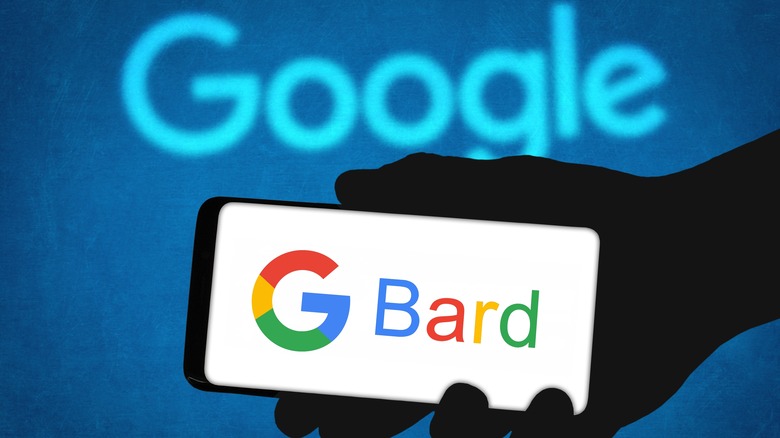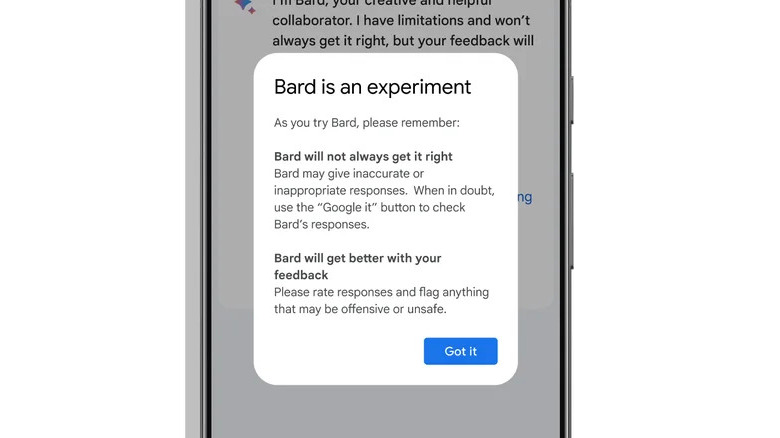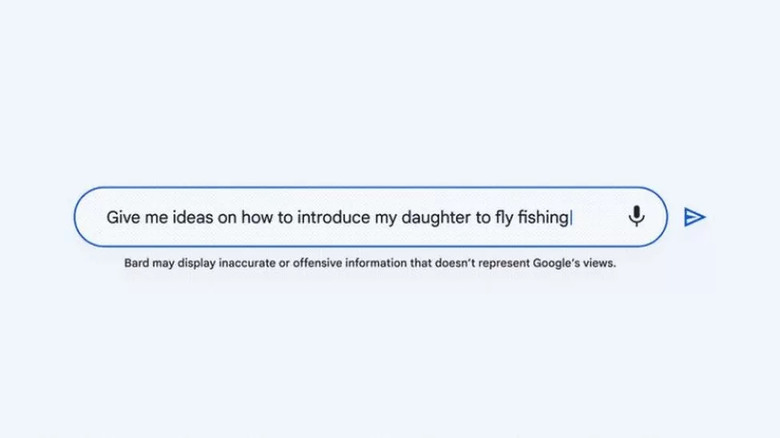You Can Test Google's Bard AI Rival To ChatGPT Now: Here's How
Google's answer to OpenAI's groundbreaking AI program ChatGPT is finally available to some users. The silicon valley giant has opened up beta testing on its highly anticipated large language model AI called Bard. Bard is developed from Google's LaMDA AI, which it has been working on for a long time. The AI that Bard is developed from previously hit the headlines after convincing an engineer it was sentient, Google was torturing it, and it needed legal help.
The beta isn't available to everyone. Google is beginning the rollout in the United States and the United Kingdom, two predominantly English-speaking countries, with other countries and languages set to be added later. The tech giant also insists anyone signing up for the beta has to be over the age of 18 and using their own account — not a parent, guardian, friend, or anyone else's. There is a waitlist, but you can join it by going to the signup page, logging in with your Google account, and clicking "Join the waitlist."
It is currently unknown how long people will be waiting and whether their access will be limited once they get the green light to join the Bard beta. What is known is, Google will use the conversations that take place during the Beta period to further train and tweak its model. As a result, users are asked to avoid putting information that could be used to identify them in their messages. The training itself seems very necessary, given the issues Bard and other models have shown.
Bard is far from perfect, and Google knows this
Despite having access to a vast database of information, Bard has the potential to be very wrong. This was accidentally demonstrated during the model's launch a few weeks ago when the GIF Google used included Bard giving inaccurate information about the James Webb Space Telescope's achievements.
Google acknowledges these shortcomings and makes it very clear that Bard shouldn't really be trusted. In its FAQ, the tech giant explains, "Bard is experimental, and some of the responses may be inaccurate, so double-check information in Bard's responses." The program includes a "Google It" button that will launch a search and allow users to double-check the answers they are being given. LLMs like Bard and ChatGPT rely on a large dataset to draw answers from. The models are trained to look for patterns in the dataset and select likely answers based on that.
While ChatGPT is using a closed model, Bard seems to have access to the internet itself. As you may know, the internet is full of false information and biased opinions. The AI may also issue responses that some people find inappropriate or offensive. AIs trained in a similar way have been known to display things like racial bias or sexist attitudes. Part of Bard's training and programming will be designed to counteract that, and things will get better over time.
What can you do with Bard?
After your time on the waitlist is over, you'll have access to the beta version of Bard. But, inevitable bugs aside, what can you expect? Bard may actually be more useful than ChatGPT in a lot of circumstances, as it has access to the internet. This means, instead of only knowing what happened up until some point around September 2021, Bard can give you up-to-date information about ongoing events.
This also allows Bard to provide sources for its claims, so while it may not always be accurate, you'll have a better chance of verifying the information or working out where it went wrong. Like ChatGPT, Bard has limited memory, so it may not recall something you said earlier in the conversation. It isn't yet clear how limited this memory is, but Google does say it is going to be expanded at some point. If Bard's memory is significantly shorter than CharGPT — like Bing Chat — then ChatGPT is still probably a better option for things like story development.
For the most part, Bard seems to be a more conversational version of Google Search. You can use it for things like decoration and recipe ideas, or to get summarised information about complex subjects. As with ChatGPT, people will obviously be pushing boundaries and working out exactly what the model can do in the coming weeks.


